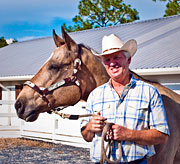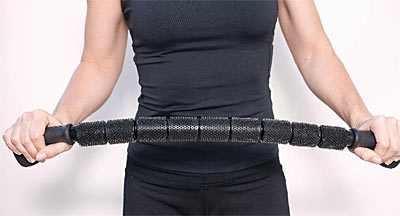 |
 |
 |
 |
 |
 |
 |
 |
 |
 |
 |
 |
 |
 |
 |
 |
|
|
 |
|
 |
|
|
|
The #1 Horse Information Resource
The Horse Information Lives Here!
About Us, About InfoHorse.com
Contact Ann to include your company
|
|
|
|
 |
|
 |
|
|
 |
|
|
|
|
Benefits of Equine Sports Massage Therapy for Performance Horses
Why it’s Not Just for Existing Soreness Issues - by Gwen Bernardo for
Equus Athletics makers of EquiStix
Many of you have probably heard of Equine Sports Massage Therapy, but may be skeptical about the benefits and/or the need of massage for your horse. Although massage does feel great for your horse, you
may be surprised to find out just how many amazing benefits equine massage therapy has, and not simply for horses with pre-existing conditions.
So what exactly is equine sports massage therapy? To help us better understand what this means, we turn to certified equine sports massage therapist, Gwen Bernardo, to shed some light on the shadows
surrounding equine massage.
“Equine sports massage therapy is the therapeutic application of massage techniques for the purpose of
increasing circulation, relaxing muscle spasms, enhancing muscle tone, and increasing range of motion in
performance horses,” says Gwen. “And, regardless if your level of performance is A Circuit or casual
weekend trail riding, your horse is performing a level of activity that can have extremely taxing effects on the body.”
In fact, according to research conducted by Tufts University of Veterinary Medicine, musculoskeletal problems are the most common cause of poor performance. But why?
“Horses are not anatomically designed to carry the weight of a rider,” says Gwen. “His structure naturally
puts sixty percent of his body weight on the forelimbs with the remaining forty percent on the hindquarters.
Because of this, a riding horse must learn to lift weight off the withers and shoulders and engage the hindquarters to move forward. He does this in order to avoid damage to his back and joints.”
Massage thus optimizes the horse’s efficiency of movement and allows the strength and flexibility necessary for him to comfortably support a rider. Equine massage is a very effective way to promote
blood flow and increase circulation, which in turn allows muscles to grow properly, work optimally, and recover quickly.
Of course, muscles of the back are not the only groups that become affected when a horse is ridden. Muscle problems are cumulative in nature, and pain or stiffness in one area can lead to overcompensation
in other areas, just as you can relate to when you experience stiffness or soreness.
Especially in the case of a high performance horse, musculoskeletal problems can severely limit a horse’s
athletic potential. An over-used or injured muscle will tighten, spasm, and become a knot, leading to a
shortening of the muscle. No amount of rest or anti-inflammatory medication will resolve the knot; it must be released and maintained in order to recover properly.
“Equine massage is really a great and simple way for you to prevent more serious injuries from occurring,
even when your horse is not displaying any signs of an existing issue,” Gwen says. “By increasing blood
flow to a muscle, you are naturally and swiftly re-oxygenating muscles, which is how the body starts its
recovery process. Even without a pre-existing issue, massage speeds this recovery process, which means
that your horse is less likely to develop serious issues. That being said, it’s also important to remember
that just because he is not displaying obvious signs of discomfort, it does not mean there is not an underlying issue quietly forming”.
A horse that is able to recover faster means that they are ready to perform sooner, which is important for
competition horses, working horses, and pleasure horses alike. It is also important for young horses that are new to accepting riders and the stresses of regular exercise.
Not only used to correct a soreness issue, massage is used by both top human and equine athletes to
increase range of motion, flexibility, and endurance. “All these things are extremely important to horse and
rider, no matter at what level, or what type of riding you perform”, says Gwen. “A western horse needs
the strength (endurance) to maintain a slow, rounded frame, while a jumper needs range of motion to be
able to get height and distance over obstacles. Even when not asking for show-ring-perfect collection, a flexible horse translates to open communication, responsiveness, and control”.
“One way to optimize the benefits of massage,” Gwen says, “whether a problem currently exists, or
whether your goal is to prevent an issue, is to perform regular - even daily- massage sessions.”
“A muscle maintenance program is something that I feel is very important. One session every year is a
great start, but it doesn’t help you achieve the benefits we’ve discussed”, Gwen continues. “Now I know
this might sound like a tall order, but it really doesn’t have to be. Performing massage techniques by
yourself before and after your horse’s workout are quite simple, and will produce amazing results in their comfort, prevention, and recovery”.
 |
“One option I suggest for many of my clients”, says Gwen, “is to use a massage tool to help make the job easier. I personally prefer a product called EquiStix, made by Equus Athletics. I recommend EquiStix for
several reasons; it’s more thorough than many other massagers out there, while still being practical and
convenient. It’s a quality product that will withstand barn life (mine has held up great, even with all the use it gets on the road with me) and the price point won’t break the bank”.
“The horses of clients who use EquiStix are easier to work on and require much less ‘fixing’ than the
horses who don’t use it, and horses with soreness issues transition to a maintenance program earlier than
the ones who don’t”. Choosing to perform massage on your horse is something that might seem a little
outside of the traditional school of thought, but you will not be disappointed by the results a daily muscle maintenance program can provide.
Gwen Bernardo is a member of the International Equine Body Worker Association and is the Official Equine massage therapist for the Cal Poly Pomona Equestrian Team. She has completed advanced
studies with industry leaders including equine spinal anatomy with Dr. Bill Hampton D.C., equine myofascial release with Jim Pascucci, and equine structural integration with Jim Masterson.
Her practice, Rider’s Edge Integrated Equine Bodywork and Saddle Fitting, serves the greater Los Angeles, CA area. For more information on Gwen Bernardo, visit her website gwenbernardo.com .
For more information on EquiStix, visit equusathletics.com .
Contact: Our Friendly Staff
2403 Montgomery Ave.
Cardiff, California 92007
Phone: 760-917-1069
Email: info@equusathletics.com
Website: Click Here To Connect |
|
|
|
To advertise your horse product or service, contact Ann
|
|
|
|
InfoHorse.com, Horse Information Lives Here ® 2/23/2026
Contact Us to Advertise to over a million Horse Owners.
All images and content Copyright© 2012 by InfoHorse.com, Equusite.com.
|
|
|
|
Articles, Academic Schools, Arena Maintenance, Animal Communicators, Barns, Barn and Accessories, Barn Equipment and Tractors, Breast Collars, Grooming Products for Horses, Hay Feeders, Horse Blankets, Horse Books, Horse Videos, Horse Breeders, Horse Camping Gear, Career Schools, Carts and Buggies, Horse Training Clinicians, Equestrian Clothing, Dogs and Puppies, Horse Fencing, Western Art & Furniture, Horse Property for Sale, Horse Products For Sale, Fly Control, Foal Care, Horse Footings, Horse Gifts, Horse Health and Nutrition, Hoof and Leg, Horse Insurance, John Lyons Certified Trainers, Equine Lawyers, Leather Care, Links, Horse Property, Horse Photography, Portable Horse Stalls, Arenas and Roundpens, Horse Riding Schools, Horse Schools, Safety Products, Services for Horses, Horse Trailers, Horse Shipping, Horse Skin Coat Care, Horse Software, Specialty Trainers, Horse Summer Camps, Tack, Horse Trainers, Treats and Snacks, Truck Accessories, Trucks, Horse Vacations, Western Lifestyle, jewelry
|
|
|